বিজ্ঞানী অর্গ এর সাক্ষাৎকার সিরিজে এবার আমরা সাক্ষাৎকার নিয়েছি পরিবেশ প্রকৌশলী ও গবেষক ড. এ এইচ এম এনামুল কবির এর । তিনি বর্তমানে কানাডার কার্লেটন বিশ্ববিদ্যালয়ে মাইক্রো- এবং ন্যানোপ্লাস্টিকের ভাঙন নিয়ে কাজ করছেন। জাপানের ইয়ামাগুচি বিশ্ববিদ্যালয় থেকে পিএইচডি সম্পন্ন করে তিনি কানাডার UQAR–ISMER ও York University-তে মাইক্রোপ্লাস্টিক দূষণ ও এর পরিবেশগত ঝুঁকি নিয়ে গবেষণা করেছেন। তার কাজ পানি ও পরিবেশ, জীববৈচিত্র্য ও মানবস্বাস্থ্য সুরক্ষায় গুরুত্বপূর্ণ ভূমিকা রাখছে। নিম্নে বিস্তারিত তার সাক্ষাৎকারটি পড়ুন
আপনার সম্পর্কে আমাদের পাঠকদের বলুন
আমি ড. এ এইচ এম এনামুল কবির। জাপানের ইয়ামাগুচি বিশ্ববিদ্যালয় থেকে পরিবেশ প্রকৌশলে পিএইচডি সম্পন্ন করেছি। সেখানে জাপানের নদী, সমুদ্র ও বর্জ্যজল পরিশোধনাগারে মাইক্রোপ্লাস্টিক দূষণ ও এর পরিবেশগত ঝুঁকি নিয়ে কাজ করেছি। এরপর কানাডার University of Quebec at Rimouski (UQAR–ISMER)-এ পোস্টডক্টরাল গবেষক হিসেবে সেন্ট লরেন্স নদী ও আর্কটিক সেডিমেন্টে মাইক্রোপ্লাস্টিক দূষণ বিশ্লেষণ করেছি। York University-তে জলজ প্রাণীর মধ্যে মাইক্রোপ্লাস্টিকের শোষণ (uptake), বর্জন (egestion) ও বায়োঅ্যাকিউমুলেশন (bioaccumulation) নিয়ে গবেষণা করেছি। বর্তমানে আমি কার্লেটন বিশ্ববিদ্যালয়ে ন্যানোপ্লাস্টিকের ভাঙনগতিবিদ্যা নিয়ে কাজ করছি।
আপনার বর্তমান গবেষণার মূল বিষয়
আমার গবেষণার বিষয় ন্যানোপ্লাস্টিক দূষণ। সূর্যের অতিবেগুনি আলো প্লাস্টিককে রাসায়নিকভাবে দুর্বল করে—যাকে বলা হয় UV-Aging—ফলে বড় প্লাস্টিক কণা ধীরে ধীরে মাইক্রো বা ন্যানো আকারের ক্ষুদ্র কণায় পরিণত হয়। অপরদিকে, পানির প্রবাহের ঘর্ষণ shear-driven fragmentation প্রক্রিয়ায় প্লাস্টিককে যান্ত্রিকভাবে ন্যানোপর্যায়ে ভেঙে ফেলে। ল্যাবরেটরিতে আমি এই ভাঙনের গতি, কণার আকার পরিবর্তন (size decay kinetics) এবং রসায়নিক-ভৌত পরিবর্তন পর্যবেক্ষণ করি। পাশাপাশি এই কণাগুলো জীববৈচিত্র্য ও মানবস্বাস্থ্যে কী ধরনের জৈবিক বা টক্সিকোলজিক্যাল ক্ষতি করতে পারে তা বিশ্লেষণ করি।
এই গবেষণার সামাজিক উপকারিতা
মাইক্রো ও ন্যানোপ্লাস্টিক কণা খাদ্যচক্রের মাধ্যমে মানুষের শরীরে প্রবেশ করতে পারে এবং প্রদাহ, অক্সিডেটিভ স্ট্রেস বা হরমোনের ব্যত্যয় সৃষ্টি করতে পারে। আমার গবেষণা এই ঝুঁকি পরিমাপ ও সংরক্ষণমূলক নীতি প্রণয়নে সহায়তা করছে। এটি SDG-6 (পরিষ্কার পানি ও স্যানিটেশন) এবং SDG-14 (সমুদ্র ও নদীর জীববৈচিত্র্য সংরক্ষণ) লক্ষ্যের সঙ্গে সরাসরি সম্পর্কিত। শিক্ষার্থী ও স্থানীয় সম্প্রদায় এই জ্ঞান ব্যবহার করে citizen science-এর মাধ্যমে পরিবেশ পর্যবেক্ষণ, সচেতনতা বৃদ্ধি এবং নিরাপদ অনুশীলন গড়ে তুলতে পারবে।
বিশেষ কোনো গবেষণা অভিজ্ঞতা
বাংলাদেশের উপকূলীয় অঞ্চলে কাজ করার সময় পানির লবণাক্ততা, সংকট এবং পানিবাহিত রোগের প্রকৃত চিত্র আমাকে গভীরভাবে নাড়া দিয়েছে। গবেষণা কেবল প্রবন্ধ প্রকাশের জন্য নয়, বরং মানুষের জীবনমান উন্নত করাই হওয়া উচিত—এ অভিজ্ঞতা আমাকে সেই উপলব্ধি দিয়েছে।
একজন বিজ্ঞানীর জন্য প্রয়োজনীয় গুণাবলি
মানবকল্যাণের জন্য জ্ঞান সৃষ্টিই বিজ্ঞানের লক্ষ্য। একজন বিজ্ঞানীর মধ্যে কৌতূহল, ধৈর্য, সততা, বিশ্লেষণাত্মক চিন্তাশক্তি, দলগতভাবে কাজের সক্ষমতা এবং গবেষণার ফল সমাজে পৌঁছে দেওয়ার দক্ষতা থাকা জরুরি।
বাংলাদেশের তরুণদের জন্য বার্তা
কৌতূহলই বিজ্ঞানচর্চার প্রথম ধাপ—প্রশ্ন করা থেকেই শুরু। ছোট করে শুরু করুন, ল্যাব ও ফিল্ডের মৌলিক কৌশল শিখুন, ব্যর্থতাকে ভয় পাবেন না। পরিবেশবিজ্ঞানের মতো ক্ষেত্রে রসায়ন, গণিত, ডেটা বিশ্লেষণ ও মডেলিং-এর আন্তঃবিষয়ক দক্ষতা অপরিহার্য। নিয়মিত ল্যাব ও ফিল্ডওয়ার্ক, ডেটা অ্যানালিটিক্স এবং বৈজ্ঞানিক লেখালেখি চর্চা করুন। স্থানীয় সমস্যাগুলো চিহ্নিত করুন এবং ছোট পরিসরে সমাধান করার চেষ্টা করুন। মনে রাখবেন—“Think globally, act locally.”
যোগাযোগ
- ইমেইল: [email protected]
- LinkedIn: linkedin.com/in/a-h-m-enamul-kabir-ph-d-1bb11297
- Google Scholar: scholar.google.com/citations?user=IP5o0SQAAAAJ
Dr. A. H. M. Enamul Kabir: A Pioneer Scientist in Nanoplastic Pollution Research
Tell us about yourself
I am Dr. A. H. M. Enamul Kabir. I completed my Ph.D. in Environmental Engineering at Yamaguchi University, Japan. There I worked on microplastic pollution and its environmental risks in rivers, seas, and wastewater treatment plants in Japan. Later, as a postdoctoral researcher at the University of Quebec at Rimouski (UQAR–ISMER), I analyzed microplastic pollution in the sediments of the St. Lawrence River and the Arctic. At York University, I studied the uptake, egestion, and bioaccumulation of microplastics in aquatic organisms. Currently, I am working at Carleton University on the fragmentation kinetics of nanoplastics.
Your current research focus
My research focuses on nanoplastic pollution. Sunlight’s ultraviolet radiation weakens plastics chemically—a process known as UV-aging—gradually breaking large particles down into micro- or nano-sized fragments. On the other hand, shear-driven fragmentation caused by water flow mechanically breaks plastics into nanoscale particles. In the lab, I study fragmentation rates, size decay kinetics, and associated chemical-physical transformations. I also examine the biological and toxicological effects of these particles on biodiversity and human health.
Social benefits of this research
Micro- and nanoplastic particles can enter the human body through the food chain, potentially causing inflammation, oxidative stress, or hormonal disruption. My research helps quantify these risks and informs conservation and policy-making. It directly contributes to SDG-6 (Clean Water and Sanitation) and SDG-14 (Life Below Water). Students and local communities can use this knowledge to engage in citizen science, raise awareness, and promote safe environmental practices.
A special research experience
During my work in the coastal areas of Bangladesh, I was deeply moved by the realities of water salinity, scarcity, and waterborne diseases. That experience taught me that research should not only aim at publishing papers but also at improving people’s quality of life.
Qualities necessary for a scientist
The ultimate goal of science is to generate knowledge for human welfare. A scientist must possess curiosity, patience, integrity, analytical thinking, teamwork ability, and the skill to communicate research outcomes effectively to society.
Message for the youth of Bangladesh
Curiosity is the first step in practicing science—it all begins with asking questions. Start small, learn basic lab and field techniques, and never fear failure. In environmental science, interdisciplinary skills in chemistry, mathematics, data analysis, and modeling are essential. Regular practice in lab work, fieldwork, data analytics, and scientific writing is crucial. Identify local problems and work toward small-scale solutions. Always remember—“Think globally, act locally.”
Contact
📧 Email: [email protected]
🔗 LinkedIn: linkedin.com/in/a-h-m-enamul-kabir-ph-d-1bb11297
📚 Google Scholar: scholar.google.com/citations?user=IP5o0SQAAAAJ

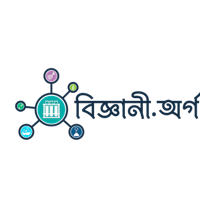
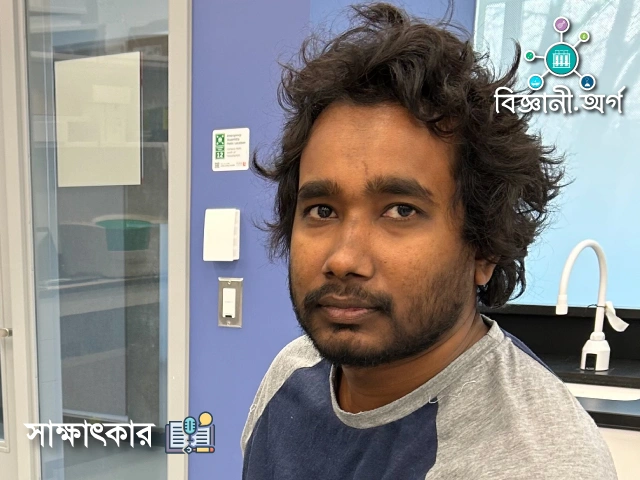

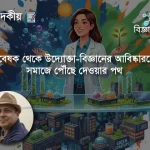

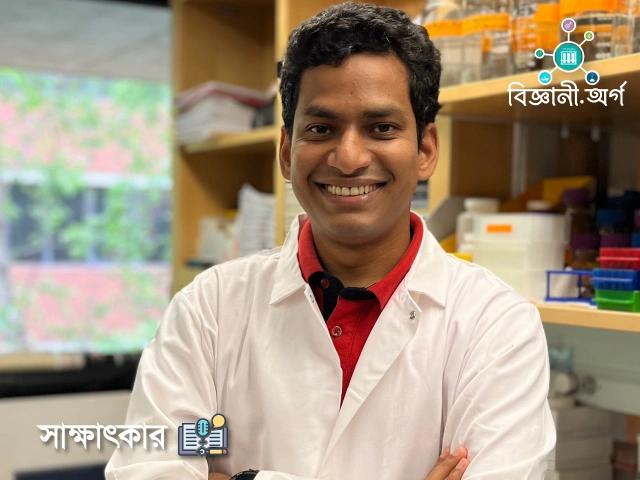
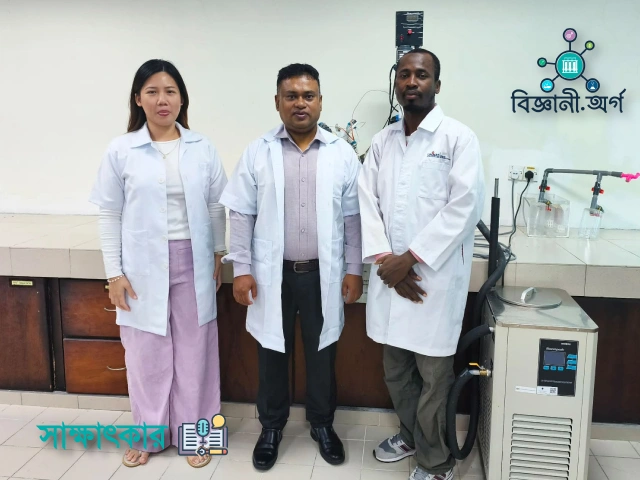
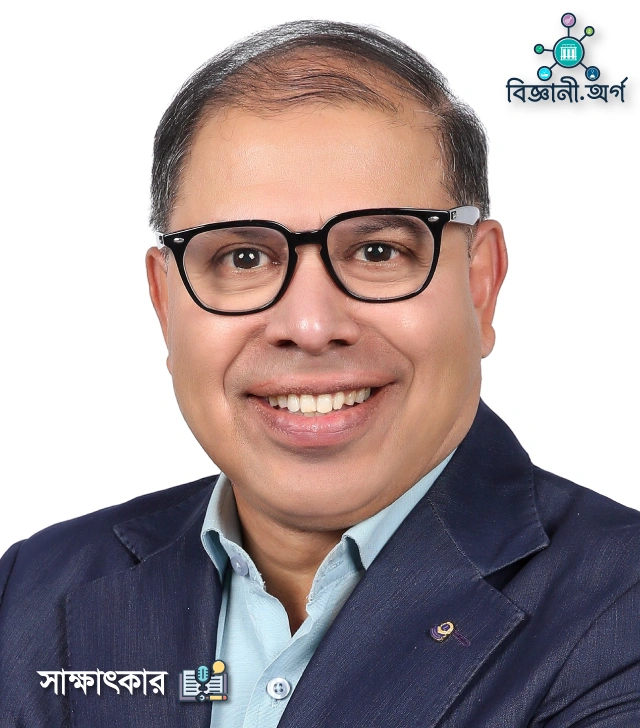
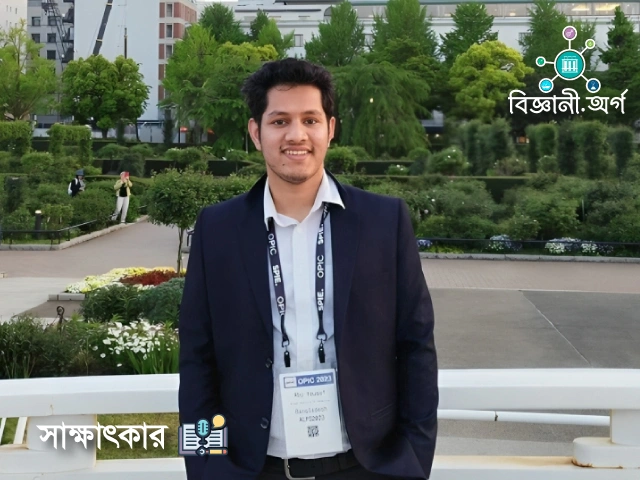

Leave a comment